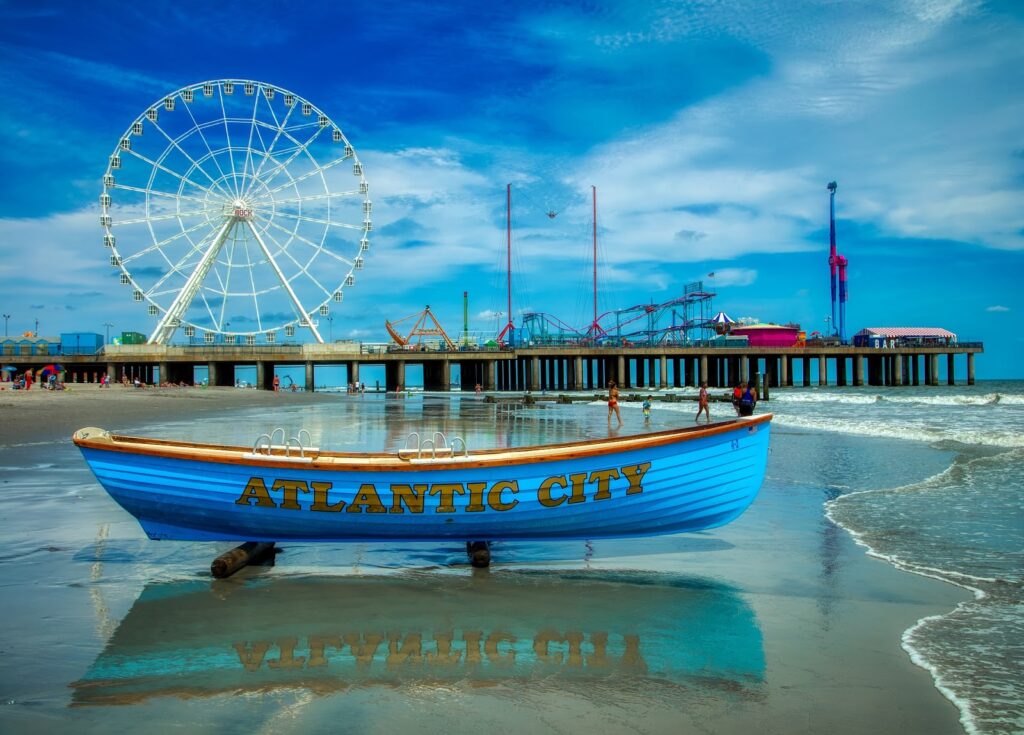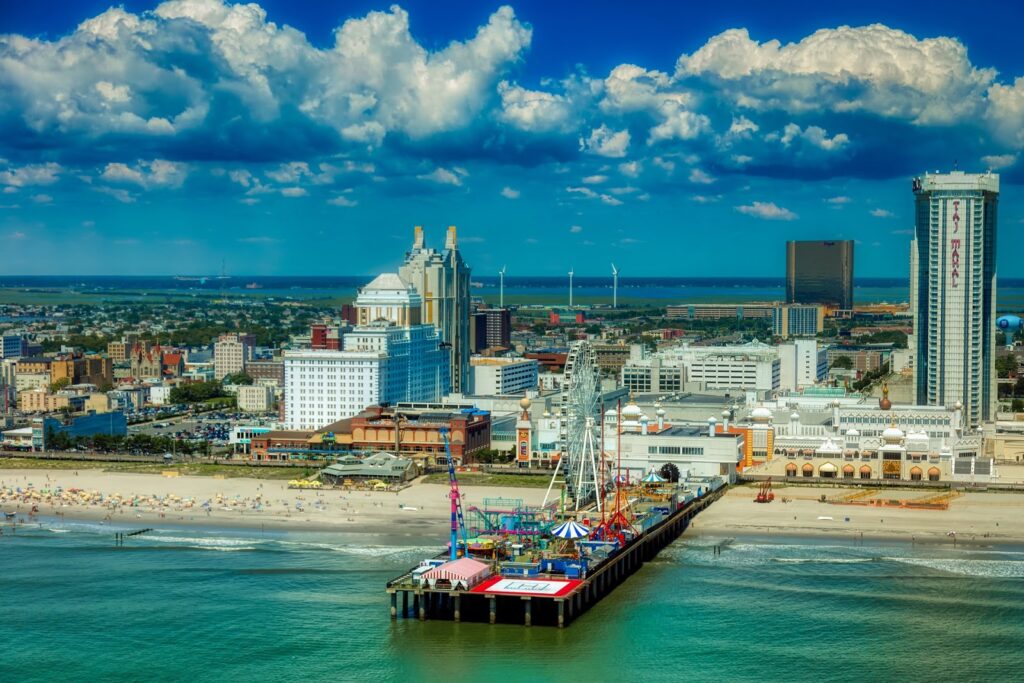
Introduction: Atlantic City AirBnB Laws
In late 2020, Atlantic City passed new legislation directly affecting short-term rentals. Mainly, the law includes licensing fees and other regulatory requirements. As a result, Airbnb hosts need to understand these new laws because they’re responsible for compliance. Unfortunately, failure to comply can lead to steep penalties for the hosts. For this reason, we’ll outline everything you need to know in this article.
The reasons Atlantic City passed these new laws cracking down on vacation rentals are two-fold. First, these properties take away tax revenue from the state normally collected at hotel stays. In light of these changes, New Jersey AirBnB hosts now must pay state sales tax and occupancy fees. To enforce this, Atlantic City wants greater regulatory authority. Second, numerous local residents have complained about AirBnB parties, particularly in the boardwalk area. With stricter laws, Atlantic City argues it will be able to better rein in these parties.
What Are the New Airbnb Laws in Atlantic City?
Generally, the new Atlantic City laws fall into three main categories: registration, occupancy fees, and miscellaneous regulations.
Registration
As of January 22, 2021, all AirBnB (and other short-term) units must apply for a registration permit and annual inspection. This application includes a $150 fee, and applicants must also include the following information:
- An exact address of the short-term rental, including block, lot, and unit number;
- Owner of record information, including name, address, telephone number, and email address;
- If the owner of record is a corporation, LLC or partnership, information on all principals, including name and address;
- Information for the property manager or the agent managing the short-term rental, including name, address, telephone number, and email address;
- Proof of general liability insurance specific to short-term rental activity;
- Land Use Certification;
- Pest Certification; and
- Fire Certification
Hosts can apply for these permits directly on the Atlantic City municipal website.
Occupancy Fees
After submitting the above application, the city will schedule an inspection of your property. This annual inspection will also determine the home’s occupancy limits. And, an associated occupancy fee based on those limits will be assessed.
- 1-6 occupants – $1,000
- 7-11 occupants – $1,500
- 12-16 occupants – $1,800
Miscellaneous Regulations
The new laws also include the below miscellaneous regulations related to rentals in Atlantic City:
- Property owners or agents must be reachable 24/7 and able to respond to complaints within an hour.
- Solid waste and recycling regulations must be followed.
- Violations of these rules may each result in court fines of up to $2,000.
Elsewhere in New Jersey, Newark and Jersey City have already passed similar legislation. This suggests that Atlantic City is simply keeping up with state-wide trends. With the intention to demonstrate how seriously it takes these new laws, the city blocked all short-term rental for a period last year. Public officials have used this crackdown to make clear to hosts that they can– and will–regulate local short-term rentals.
How Will the New Airbnb Laws Affect Hosts in Atlantic City?
Each of the above parts of Atlantic City’s new law will affect AirBnB hosts. While Airbnb holds partial responsibility as the leasing platform, compliance is primarily a host responsibility. This includes following the fees, legal, and tax aspects of city and state laws.
From a tax perspective, Airbnb collects the occupancy and sales taxes for individual stays. This eases the tax administration burden for hosts. However, hosts still must pay associated income taxes and annual fees outlined in the above section.
Following, we outline the major legal and fee considerations for hosts.
How Do I Stay Compliant with the New Airbnb Laws?
Airbnb wants its hosts to remain compliant with these new laws. If a host gets in trouble, AirBnB loses revenue. As a result, the site has published a comprehensive set of guidelines for its Atlantic City hosts. Staying compliant mainly involves:
- Requesting and paying for your annual registration and inspection
- Paying your annual occupancy fee
- Abiding by the other miscellaneous regulations, particularly with respect to 24/7 availability
How to Mitigate the Negative Effects of the New Airbnb Laws
We absolutely understand how much of a burden these laws impose on AirBnB hosts. Nevertheless, you can take some steps to mitigate their negative effects. First, treat these new fees as business expenses. Specifically, budget for them throughout the year and make sure you deduct them from taxable income.
Secondly, get organized! You need to submit a ton of paperwork with your annual applications. We recommend that you organize these items digitally. A Google Drive folder for each year can be a great solution. That way, as registration time comes around, you’ll have a template built from the prior year.
Third, be extremely responsive to your guests’ needs and complaints. If guests file multiple complaints against hosts with the city, you can lose your license and face a fine. As such, we highly recommend open and frequent communication with all guests. It’s far better to quickly address an issue than ignore it, which may lead to a formal complaint.
If you do not believe you can adequately respond to guest needs, you may want to consider hiring a short-term rental management company.
Why Did Atlantic City Introduce New Airbnb Laws?
Realistically, not a single reason exists for these new laws. Instead, Atlantic City passed this short-term rental legislation due to a combination of the following factors:
- Revenue: The new laws are projected to raise approximately $1.2 million for the Atlantic City government.
- Pressure from special interest groups: Traditional short-term rentals like hotels and casinos have felt pressure due to the expansion of Airbnb properties. As a result, they have lobbied city officials to hold these rentals to the same standards they must meet.
- Health: In the era of COVID-19, city governments everywhere want to maintain health standards. This is next to impossible with unregulated short-term and vacation rentals. This legislation attempts to address this lack of regulation.
- Community complaints: In many cities with a lot of AirBnBs, including Atlantic City, locals complain. They see out-of-towners partying and changing the nature of their neighborhoods. Subsequently, they see government intervention as a way to address this bad behavior.
Key Takeaways: What You Need to Know About Airbnb Laws in Atlantic City
In conclusion, due to this new legislation, Airbnb hosts need to comply with three major requirements. First, they must register with the city and complete an annual inspection. Second, they must pay an annual occupancy fee, depending on the size of their property. And third, they must comply with several miscellaneous requirements. Of these, 24/7 availability to guests will prove the most burdensome.
We absolutely understand how overwhelming these new Atlantic City laws can be for hosts. We’d love to help. At Tax Hack, we live and breathe taxes and compliance for AirBnB. Contact us to set up a strategy session!
